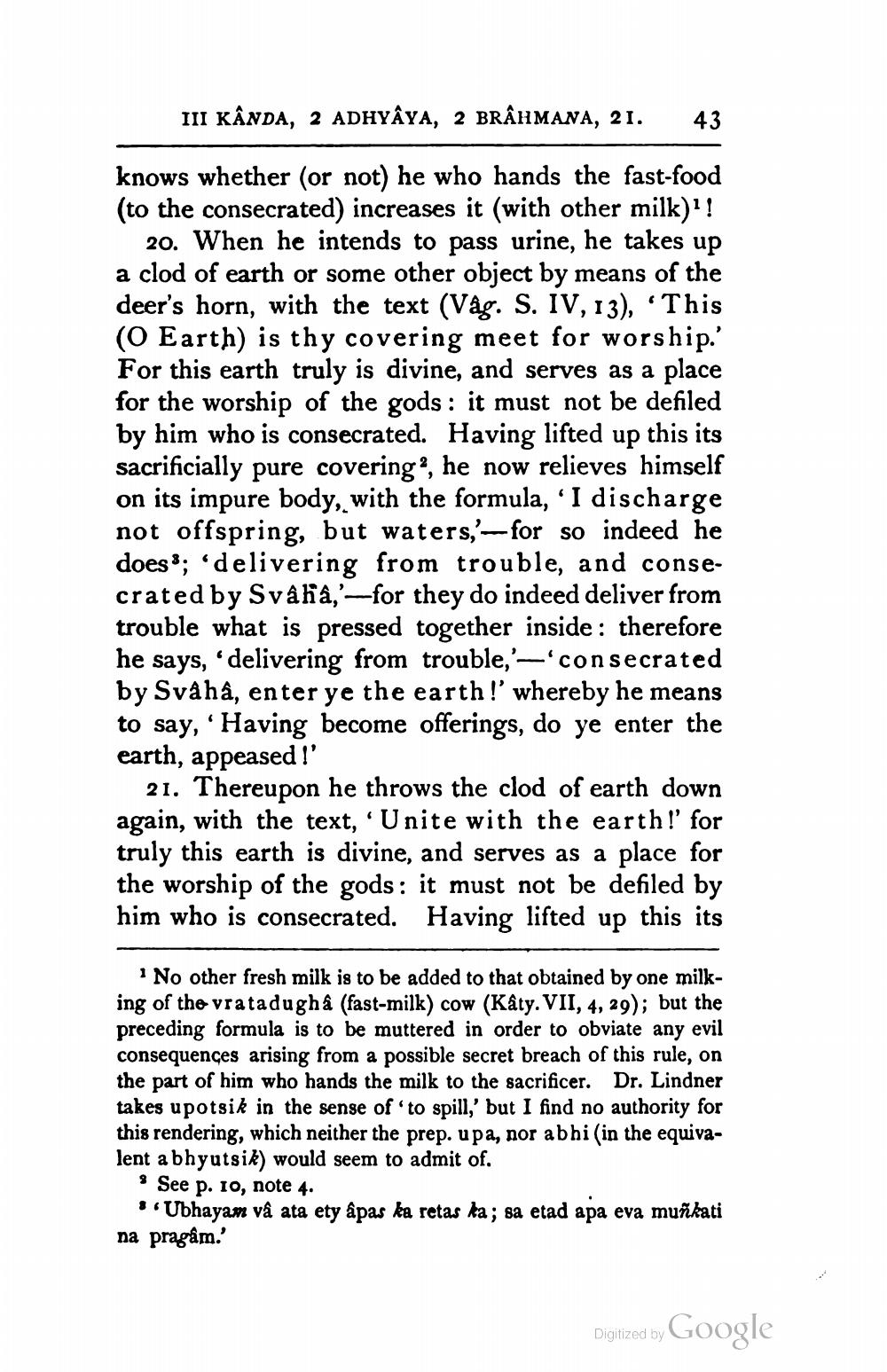________________
III KÂNDA, 2 ADHYAYA, 2 BRAHMANA, 21. 43
knows whether (or not) he who hands the fast-food (to the consecrated) increases it (with other milk)1!
20. When he intends to pass urine, he takes up a clod of earth or some other object by means of the deer's horn, with the text (Vâg. S. IV, 13), 'This (O Earth) is thy covering meet for worship.' For this earth truly is divine, and serves as a place for the worship of the gods: it must not be defiled by him who is consecrated. Having lifted up this its sacrificially pure covering, he now relieves himself on its impure body, with the formula, 'I discharge not offspring, but waters,'-for so indeed he does'; 'delivering from trouble, and consecrated by Svâlâ,'-for they do indeed deliver from trouble what is pressed together inside: therefore he says, 'delivering from trouble,'-'consecrated by Svåhâ, enter ye the earth!' whereby he means to say, 'Having become offerings, do ye enter the earth, appeased!'
21. Thereupon he throws the clod of earth down again, with the text, 'Unite with the earth!' for truly this earth is divine, and serves as a place for the worship of the gods: it must not be defiled by him who is consecrated. Having lifted up this its
1 No other fresh milk is to be added to that obtained by one milking of the vrata dugh â (fast-milk) cow (Kâty. VII, 4, 29); but the preceding formula is to be muttered in order to obviate any evil consequences arising from a possible secret breach of this rule, on the part of him who hands the milk to the sacrificer. Dr. Lindner takes upotsik in the sense of 'to spill,' but I find no authority for this rendering, which neither the prep. upa, nor abhi (in the equivalent a bhyutsik) would seem to admit of.
See p. 10, note 4.
Ubhayam vâ ata ety âpas ka retas ka; sa etad apa eva muñkati na pragâm.'
Digitized by
Google




